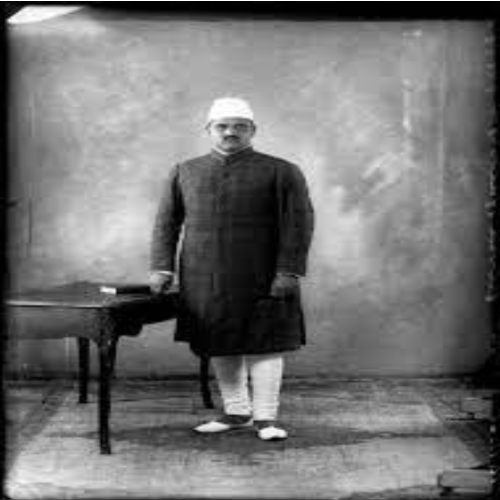Early Life
Govind Malaviya was born on 14 September 1902. He was the youngest son of Madan Mohan Malaviya (a political leader and educationist). Malaviya completed his schooling at the Dharmajnyanopadesha Sanskrit Pathshala and A. V. School, Allahabad. He then graduated from Banaras Hindu University.
Role in India’s Independence Movement
He was involved in politics from a young age, arguably influenced by his father. Malaviya joined the Congress in 1920. In 1930, Malaviya was appointed the General Secretary of the All -India Congress Committee. He participated in the Second Round Table Conference in London (1931). Later, he served as the General Secretary at the All-Parties Unity Conference in Allahabad (1932).
Malaviya also engaged in activism. He was imprisoned eight times for his involvement in various political movements against the British. Interestingly, his family was also actively involved in the Indian independence movement – his wife, Usha Malviya was arrested for participating in the protest against the Jallianwala Bagh massacre.
Contribution to Constitution Making
Malaviya was elected to the Constituent Assembly from United Provinces on a Congress party ticket. He spoke on issues such as the election of the President, periodical review of the Constitution, and reservations.
Later Contributions
Following the footsteps of his father, Malaviya continued his political and educational work post-independence as well. In pursuance of his educational efforts, he was appointed the Vice-Chancellor of Banaras Hindu University (1948 – 1951). After 1951, he played an active role in electoral politics and was elected as a Member of Parliament (1952 – 1957) from the Sultanpur constituency in Uttar Pradesh.
He passed away on 27 February 1961.
- When the Draft Constitution was tabled, Malaviya expressed a few concerns such as his objection to electing the President by means of a single transferable vote instead of a direct vote.
- He proposed to include a provision for ending reservations for backward classes prior to the expiry of ten years after the Constitution comes into force. He noted that the discretion to end reservations would lie with the members of the backward classes.
- Malaviya recommended that there must be a provision for periodical review and amendment of the Constitution. He further observed that the process for amendments to the Constitution should be difficult and rigid to prevent misuse of the amendment provisions
- Address by Pandit Govind Malaviya, Vice-Chancellor, Banaras Hindu University on the Occasion of the Second Anniversary Meeting, National Geographical Society of India

